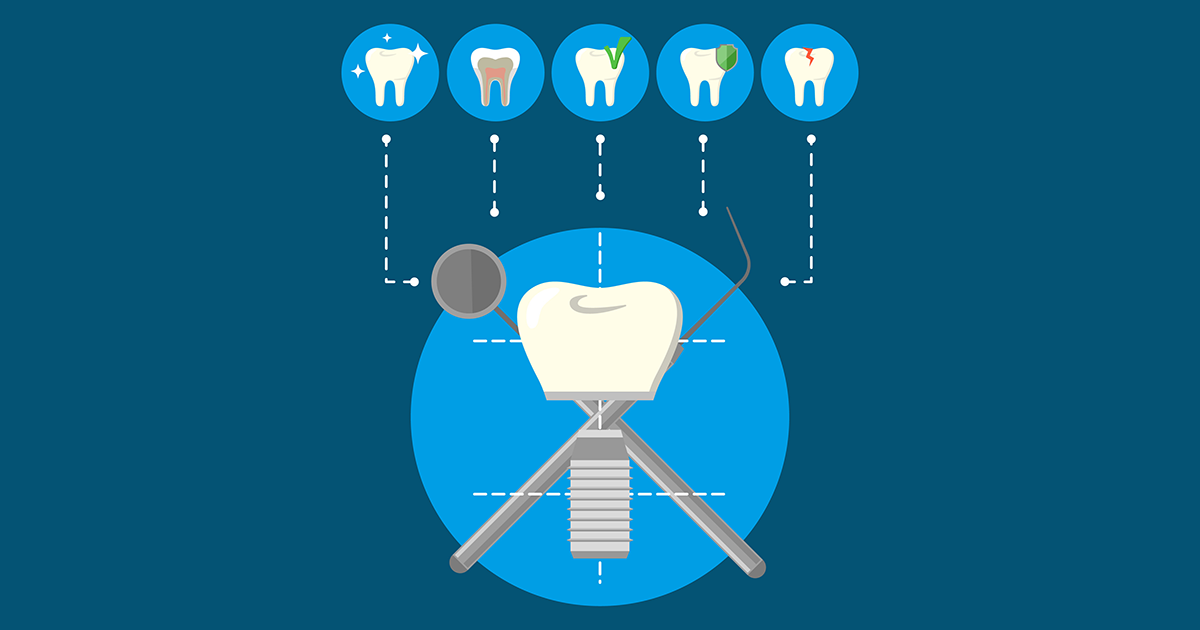What You Need to Know Before and After Your Dental Implant Procedure
It's important to be prepared and well-informed for your dental implant procedure. Learn about aftercare and what you need to know here.
Did you know that the anti-aging industry is worth billions? Yet, when it comes to preserving youth, nothing is as priceless as a radiant smile.
Dental implants, the gold standard for smile restoration, demand meticulous care both before and after the procedure. With a trusted expert like Dr. Garland K. Davis, DDS in Laurel, MD, by your side, you're about to embark on a journey that can transform your life.
Whether your teeth are damaged, missing, or simply not up to par, dental implants hold the key to reclaiming your confidence and radiance. Just like any medical procedure, thorough preparation and knowledge are your allies.
In this comprehensive guide, we'll walk you through what to expect with dental implants. Let's dive in.
Preparing for Your Initial Dental Implant Consultation
An initial dental exam and consultation is the first step with any elective dental procedure. During your appointment, we'll check your teeth, gums, and jaw to see if dental implants are a good option for you.
Next, we'll take x-rays and scans to evaluate your bone structure. You need adequate bone mass to support the titanium implant.
Then, we'll discuss options to replace your missing tooth, including:
- Bridges - A fixed prosthetic made of false teeth anchored to crowns on adjacent teeth.
- Partial dentures - A removable appliance with false teeth that attaches to remaining natural teeth.
- Dental implants - A titanium screw that fuses with the jawbone to act as an artificial root for a replacement tooth.
Make sure you share your complete medical history, including any pre-existing conditions or medications you take. Certain medical conditions like diabetes and osteoporosis can impact dental implant healing times.
Once we have a plan of action, we can start making plans. We will discuss the implant process, estimated costs, and insurance coverage.
If you have any questions, this is the time to ask them. Gathering information upfront will reduce anxiety and help you prepare.
Dental Implant Surgery Procedure
The implant procedure is performed in your dentist's office under local anesthesia or IV sedation for comfort. It generally involves two phases:
Phase One: Implant Placement
First, your dentist will make a small incision in your gums to expose the jawbone. They will use surgical tools to create a socket for the titanium screw-like implant to be placed. The implant will integrate with your bone in a process called osseointegration.
Once the implant is secured, they place a protective cover screw over it and suture your gums.
This phase usually takes 30-90 minutes. Most patients experience minimal discomfort.
Phase Two: Abutment and Crown
The implant will be uncovered during your follow-up visit, and an abutment will be attached. This connects the implant to the visible artificial tooth crown, replicating your natural tooth.
Your dentist will take an impression to custom design your permanent crown for proper fit and comfort. It will match your other teeth for a seamless, natural appearance.
The crown is then secured in place with dental cement. You'll be able to eat and smile confidently after only a few weeks of healing.
Recovery, Healing, and Aftercare
Proper dental implant aftercare prevents infection and allows your mouth to heal correctly after a dental implant procedure. Follow your dentist's instructions during this period.
Manage Discomfort and Swelling
Use ice packs on the implant area for 48 hours after surgery to reduce inflammation. Apply for 10-15 minutes several times a day.
Take over-the-counter pain relievers like ibuprofen as directed by your dentist. Prescription medications may also be provided for more severe discomfort.
Avoid strenuous exercise and activities that involve heavy jaw movement. Light walking is fine after the first few days.
If you have a lot of bleeding, pain, or signs of infection such as fever, chills, or bad smell, tell your dentist right away. Some soreness and swelling are normal, but infection requires prompt treatment with antibiotics.
Watch What You Eat and Drink
Stick to cool, soft food, soup, eggs, and mashed vegetables. Avoid crunchy, sticky, or very hot foods that could irritate the implant site.
Stay hydrated by drinking plenty of water and avoiding alcohol for at least 24-48 hours. Do not drink beverages through a straw, which can dislodge the blood clot and delay healing.
Practice Proper Oral Hygiene
Gently brush and floss around the implant, being careful not to disturb it. Use a soft-bristle toothbrush. Use antiseptic mouthwashes as recommended by your dentist to keep the area clean.
Avoid tobacco products as smoking impairs healing and increases the risk of implant failure.
Schedule Follow-Up Appointments
Attend any follow-up appointments as directed by your dentist to monitor the healing and integration of the implant. Plan dental cleanings every 6 months and routine exams to ensure the implant remains healthy and functional. Report any concerns promptly.
Following proper aftercare will help ensure your implant heals correctly and lasts many years. Don't hesitate to call your dentist with any questions during your recovery.
Ongoing Care Tips
You've got to take care of those new pearly whites! Practice good oral hygiene by brushing around the implant site twice per day. Use antiseptic mouthwash.
Remember to get regular dental cleanings and checkups over the years so your dentist can keep an eye on the implant and your oral health. Be diligent about protecting your investment in your smile.
Results You Can Smile About
We love dental implants because they can restore confidence and oral health. Here's what makes them an excellent choice for many patients.
Durability
With proper care, implants can last 30 years or longer. Other alternatives, like bridges, generally need replacement after five to seven years.
Convenience
An implant functions like a natural tooth. There's no need to remove implants for cleaning or sleep like a denture.
Confidence
Implants look, feel, and function like your own teeth. You can eat and speak normally without worrying about slippage or limitations.
Schedule Dental Implants
Investing in a confident, healthy smile is one of the wisest choices you can make. Dental implants offer natural-looking, long-lasting results with minimal discomfort or lifestyle impact. With proper care, your implant can last decades.
Take the first step and book your appointment online to learn if implants are right for you. With a skilled dentist in Laurel, MD like Dr. Garland K. Davis, you'll soon be flashing your new smile with pride. Contact his Laurel, MD, dental office today to
schedule a consultation.
Business Hours
- Mon - Thu
- -
- Friday
- -
- Sat - Sun
- Closed
All Rights Reserved | Garland K. Davis, DDS
Website designed and maintained by Xpress, INC

